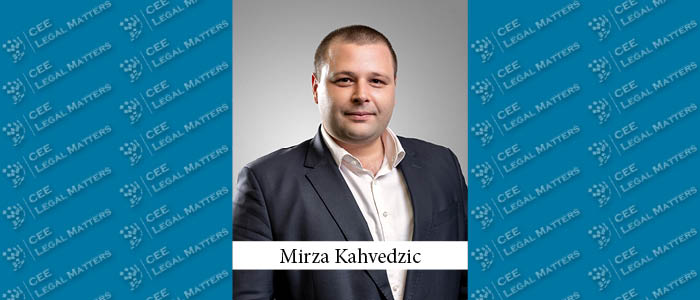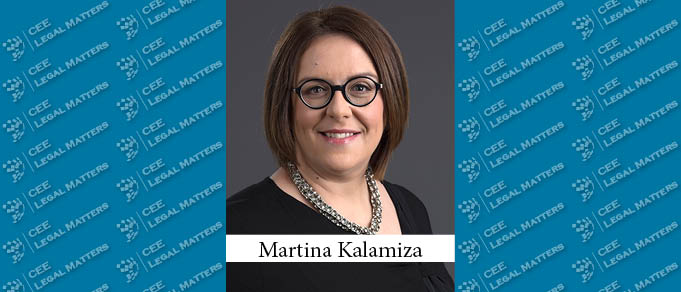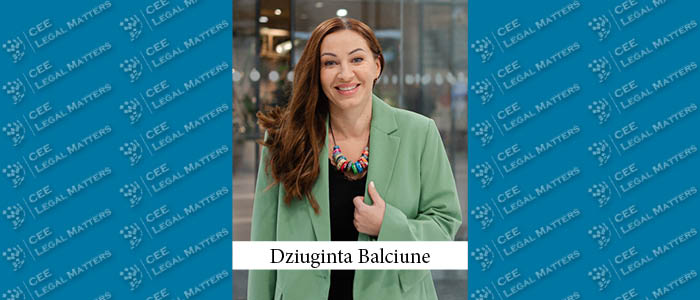In the dynamic Central and Eastern European legal sector, the trend of law firms merging and consolidating has become increasingly prominent. This trend is driven by a quest for synergies, expanding the client base, achieving cost savings, and gaining a competitive edge in the war for talent.
Dissecting CEE Disputes
ACI Partners Managing Partner Igor Odobescu, Nagy es Trocsanyi Founding Partner Peter Nagy, Kinstellar Partner Radovan Grbovic, Law Office Vujacic Partner Sasa Vujacic, and Tuca Zbarcea & Asociatii Partner Robert Rosu discuss recent litigation trends across CEE, driven by the impact of economic shifts and regulatory changes in their jurisdictions.
The Corner Office: Essential Checklist for Partner Departures
In The Corner Office, we ask Managing Partners at law firms across Central and Eastern Europe about their backgrounds, strategies, and responsibilities. As partner departures are inherent to the workings of any law firm, and likely demand clear strategies for navigating, this time around we asked: What are the three most important items on your checklist when a Partner leaves your firm?
The Inside Track: Team Critical Skill
In The Inside Track, General Counsels across CEE share the nuances of their roles, challenges, and strategies for success. In the dynamic landscape of modern businesses, where adaptability and innovation are paramount, this time around we asked GCs: What is the one critical skill that you’re investing time and energy in to develop within your team, and why?
Prague-matic International Law Firms
Since the early 1990s, following the fall of the Iron Curtain, international law firms have established and expanded their presence in the Czech Republic, creating a dynamic legal market alongside burgeoning local firms. Deloitte Legal Czech Republic Managing Partner Martin Bohuslav and CMS Prague and Bratislava Partner Helen Rodwell explore the strategic entries, exits, and endurance of these firms amidst evolving market conditions and economic challenges in the region.
Inside Insight: Mirza Kahvedzic of EOS Matrix Bosnia and Herzegovina
EOS Matrix Bosnia and Herzegovina Executive Director for Legal Affairs Mirza Kahvedzic discusses his career path leading up to his current role, how his legal team operates, and current challenges faced due to slow court proceedings.
Inside Insight: Richard Bacek of Siemens
Siemens General Counsel for the Czech Republic and Slovakia Richard Bacek talks about his transition from law firms to in-house and ongoing challenges including navigating new legislation, such as cybersecurity regulations.
Know Your Lawyer: Tomas Sequens of Kocian Solc Balastik
An in-depth look at Tomas Sequens of Kocian Solc Balastik covering his career path, education, and top projects as a lawyer as well as a few insights about him as a manager at work and as a person outside the office.
Know Your Lawyer: Branko Maric of Maric & Co
An in-depth look at Branko Maric of Maric & Co covering his career path, education, and top projects as a lawyer as well as a few insights about him as a manager at work and as a person outside the office.
Croatia: Sustainability Linked Bonds on the Capital Market
Almost two years ago, I discussed in an article published in CEE Legal Matters the presence of “green” bonds and financings in Croatia. The thesis put forward in that article was focused on the necessity of companies and financial service providers to be more “green” in terms of the products they offer on the Croatian (capital) markets and goals on sustainability which should be accomplished.
Bulgaria: OTC Derivatives, Repurchases, and Securities Lending Transactions – Expected EBRD-Driven Reforms
Derivatives, repurchases, and securities lending transactions are often used by sophisticated financial institutions and large corporate entities in Bulgaria to manage their portfolios of investments, hedge against financial risks, or get short-term credit. Such products are predominantly offered on an OTC basis by foreign banks, with mainly the largest local banks having the know-how and resources to do the same.
Slovenia: Navigating Property Bonds
In recent years, we have been seeing that real estate developers are starting to turn to debt capital markets to raise capital for their real estate development projects in Slovenia. When issuing bonds for real estate development projects, investors usually expect to have security on the real estate property that is being developed. Similar to other finance transactions, collateral can take various forms. This article examines the possibilities of establishing collateral on real estate property for bonds in Slovenia.
Kosovo: Initial Phase in Capital Market Development – Balancing Challenges and Benefits
On January 25, 2024, the Office of the Prime Minister of the Republic of Kosovo published a list of concept notes anticipated for drafting and adoption by the Kosovo Government in the present year. The concept note, a regulatory prerequisite to the enactment of legislation within a specified domain, specifies the objectives of prospective governmental policy and the optimal modalities for their implementation.
Albania: Passporting of EU Investment Funds Now Possible... But Not Really There Yet
Albania, driven by its commitment to align with European Union standards, has embarked on a comprehensive journey to harmonize its financial legislation with EU directives, particularly in the realm of capital markets. At the forefront of this effort stands Law 56/2020 “On Collective Investment Undertakings” (Albanian CIU Law), a pivotal piece of legislation that encompasses the passporting of foreign investment funds into Albania. This landmark law, coupled with the recent enactment of Regulation no. 37 (Passporting Regulation) and Regulation no. 38 (Distribution Regulation) by the Financial Supervisory Authority (FSA), lays down the groundwork for the processes of passporting and distribution within the Albanian financial landscape.
Turkiye: Recent Developments in Sustainability Reporting under Turkish Law
Due to the importance of disclosure of compliance with sustainability principles in evaluating the performance of companies, to ensure transparency, comparability, and reliability of the disclosures made within the scope of environmental, social, and governance (ESG) considerations, regulations have been introduced in the Turkish legal system.
Czech Republic: Changes in Alternative Fund Regulation
Investment funds in the Czech Republic are regulated by the Czech Investment Companies and Investment Funds Act (ZISIF) and by local implementing regulations (governmental decrees and decrees of the Czech National Bank – CNB).
Lithuania: Capital Market of the Baltic States and the Trends – A Q1 Outlook
The Baltic region, comprising Lithuania, Latvia, and Estonia, boasts an emerging public capital market facilitated by the unified securities trading platform – the Nasdaq Baltic Stock Exchange.
Serbia: Navigating Capital Markets – Overcoming Challenges while Striving Toward Rebirth
The economic sector of the Republic of Serbia, including the capital market, offers a telling reflection of the global market’s challenges and some regional specifics. Despite periods of uncertainty and stagnation, Serbia’s capital market maintains signs of vitality and potential for growth.






































